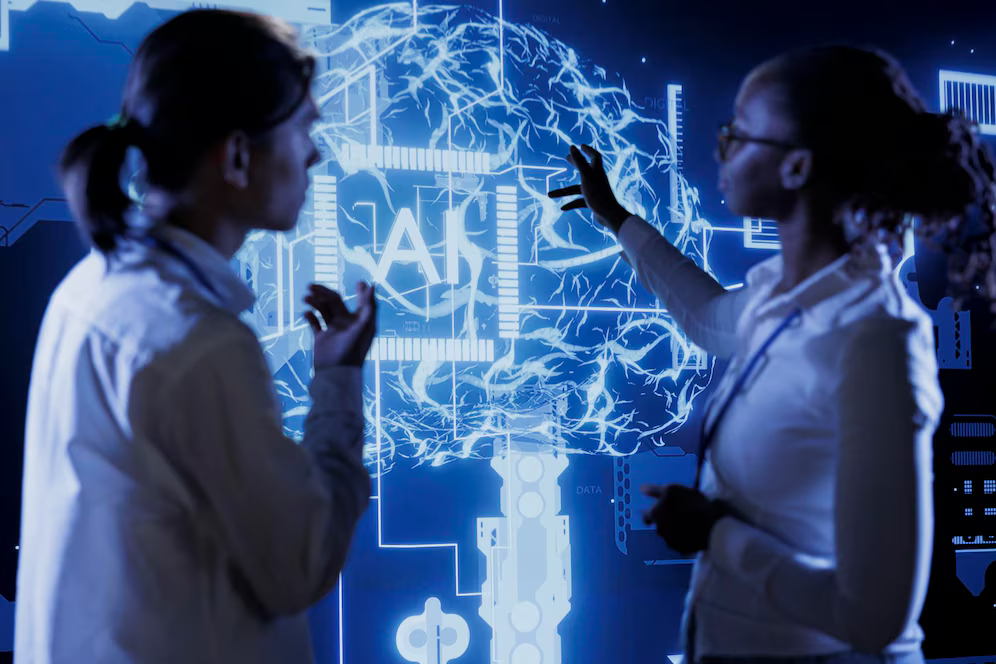
The AI revolution is not only transforming industries but also reshaping the way we work. While some fear that AI will replace human jobs, others argue that it will create new opportunities and enhance the roles of workers across various fields. The truth likely lies somewhere in between—AI will both disrupt and complement the workforce, driving major changes in the way we approach work.
In many industries, AI is automating repetitive tasks that were once performed by humans. For example, in manufacturing, robots powered by AI are assembling products with greater precision and speed than ever before. In administrative roles, AI software can handle tasks like scheduling, data entry, and customer service inquiries, freeing up human workers to focus on more complex and creative tasks.
However, while AI is automating certain job functions, it is also creating new roles. For instance, the rise of AI technology has led to a surge in demand for data scientists, AI specialists, and machine learning engineers. These professionals are responsible for developing, implementing, and maintaining AI systems across industries, from healthcare to finance.
AI also has the potential to transform the way employees collaborate and make decisions. AI-driven tools like predictive analytics and decision support systems can assist workers in making better-informed decisions, improving overall business performance. AI-powered platforms also facilitate remote work, enabling teams to collaborate seamlessly from different parts of the world.
Despite the positive changes, there are challenges. Workers in industries prone to automation may face job displacement, requiring them to upskill or transition to new fields. There is also a need for reskilling initiatives to ensure that workers are equipped with the skills required to work alongside AI technology.
As AI continues to advance, it will be essential for businesses and governments to address the social and ethical implications of AI adoption, ensuring that the benefits of this technology are distributed equitably and that workers are prepared for the future of work.
In many industries, AI is automating repetitive tasks that were once performed by humans. For example, in manufacturing, robots powered by AI are assembling products with greater precision and speed than ever before. In administrative roles, AI software can handle tasks like scheduling, data entry, and customer service inquiries, freeing up human workers to focus on more complex and creative tasks.
However, while AI is automating certain job functions, it is also creating new roles. For instance, the rise of AI technology has led to a surge in demand for data scientists, AI specialists, and machine learning engineers. These professionals are responsible for developing, implementing, and maintaining AI systems across industries, from healthcare to finance.
AI also has the potential to transform the way employees collaborate and make decisions. AI-driven tools like predictive analytics and decision support systems can assist workers in making better-informed decisions, improving overall business performance. AI-powered platforms also facilitate remote work, enabling teams to collaborate seamlessly from different parts of the world.
Despite the positive changes, there are challenges. Workers in industries prone to automation may face job displacement, requiring them to upskill or transition to new fields. There is also a need for reskilling initiatives to ensure that workers are equipped with the skills required to work alongside AI technology.
As AI continues to advance, it will be essential for businesses and governments to address the social and ethical implications of AI adoption, ensuring that the benefits of this technology are distributed equitably and that workers are prepared for the future of work.
